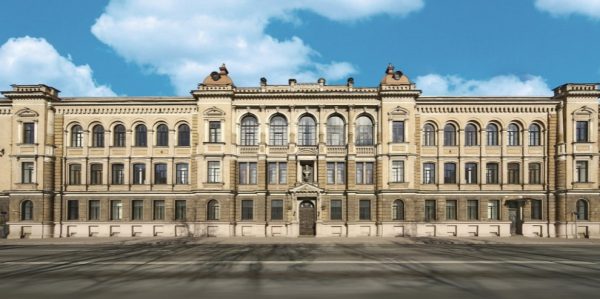SPŠ strojní a elektrotechnická, Dukelská 13, České Budějovice
Střední průmyslová škola strojní a elektrotechnická v Dukelské ulici byla založena v roce 1913. Školu v současné době navštěvuje 428 žáků (z toho je 14 dívek), kterým poskytujeme úplné střední odborné vzdělání zakončené maturitní zkouškou ve dvou oborech. Jedná se o obory Strojírenství 23-41-M/01 a Elektrotechnika 26-41-M/01, a mají následující zaměření:
- TECHNICKÝ SOFTWARE A STROJÍRENSKÁ EKONOMIKA
- ELEKTROENERGETIKA A ELEKTRICKÉ STROJE
- ROBOTIKA A ŘÍDÍCÍ TECHNIKA
- ELEKTROMOBILITA A ALTERNATIVNÍ POHONY
Jsme otevřená škola, do vzdělávání aktivně zapojujeme jak žáky a rodiče, tak i partnerské firmy (např. ČEZ, EGE, Bosch) a neziskové organizace. Žáci se podílejí na rozvoji a fungování školy v rámci studentského parlamentu (např. Den žáků pro žáky), rodiče aktivně řeší spolupráci se školou v rámci SRPŠ. Naším cílem je poskytnout žákům co nejširší rozhled v rámci jejich budoucího uplatnění. Proto pořádáme různé akce: Den pro firmy, pro VŠ a pro praxe.
Stěžejními prezenčními obory jsou Strojírenství a Elektrotechnika, které v rámci volitelných předmětů nabízejí žákům orientaci na silnoproudou (elektroenergetiku) či slaboproudou elektrotechniku, programování CNC strojů, automobilové obory nebo podnikovou ekonomiku.
Nově je otevřen i studijní obor Elektromobilita, který kombinuje výhody obou stávajících oborů. Škola spolupracuje s velkými podniky v kraji (ČEZ, EGE, Bosch, ČEPS, Jihostroj, Motor Jikov), které školu podporují i finančně a které si zde často přímo vybírají své budoucí zaměstnance. Proto je hlavní ambicí naší školy komplexně připravit žáka na profesní uplatnění. Klademe důraz na výuku cizích jazyků, dobré zvládnutí práce s počítačem a základy ekonomiky usnadňující i vstup do vlastního podnikání.
The Secondary Technical School of Mechanical and Electrical Engineering in Dukelská Street was founded in 1913. The school is currently attended by 428 pupils (14 of whom are girls), who are provided with a complete secondary vocational education ending with a matriculation examination in two disciplines. These are Mechanical Engineering 23-41-M/01 and Electrical Engineering 26-41-M/01, and have the following focus:
TECHNICAL SOFTWARE AND ENGINEERING ECONOMICS
ELECTRICAL ENGINEERING AND ELECTRICAL MACHINERY
ROBOTICS AND CONTROL TECHNOLOGY
ELECTROMOBILITY AND ALTERNATIVE DRIVES
We are an open school, we actively involve students and parents in education, as well as partner companies (e.g. ČEZ, EGE, Bosch) and non-profit organizations. Pupils are involved in the development and functioning of the school within the student parliament (e.g. Pupils’ Day for Pupils), parents actively address the cooperation with the school within the framework of the SRPS. Our aim is to provide pupils with the widest possible outlook in their future careers. We therefore organise various events: a day for companies, for universities and for apprenticeships.
The core full-time courses are Mechanical Engineering and Electrical Engineering, which offer pupils orientation to power (electrical) or low-current electrical engineering, CNC machine programming, automotive fields or business economics as part of elective courses.
A new course of study in Electromobility is also open, combining the advantages of both existing courses. The school cooperates with large companies in the region (ČEZ, EGE, Bosch, ČEPS, Jihostroj, Motor Jikov), which also support the school financially and which often directly choose their future employees here. That is why the main ambition of our school is to comprehensively prepare students for professional employment. We emphasize the teaching of foreign languages, good computer skills and basic economics to facilitate the entry into one’s own business.
Riga State Technical School

Vocational Education Competence Centre “Riga State Technical School” (RSTS) with more than 2500 students and 400 staff is the largest vocational secondary education institution in Latvia. RSTS provides long-term educational policy in the state according with National Vocational Education Standards, Occupational Standards and requirements in labor market. It is a public and non-profit body. The task of RSTS is to prepare the students for work in a specialized profession and to promote knowledge, skills and attitude that correspond to vocational qualifications and support competitiveness in the changing working environment. RSTS provides vocational secondary education and training programs. It provides knowledge and skills required for Level 4 vocational qualification. There are 9 departments in RSTS: Auto, Computer, Business, Chemistry technology, Energetics, Mechanical engineering, Printing, Woodworking and Railway.
RSTS has already years of experience in the areas relevant for the project in vocational education. Since 2010 we have implemented a number of different initiatives – under national and EU programmes. For example: ERAF, ESF, Erasmus+, VET Mobility Charter, united by borders, Nordplus etc. RSTS actively participates not only in Erasmus+ KA2 projects, but also in KA1 projects related to mobility of students and teachers in other countries for gaining and exchanging experience. RSTS started to participate in Erasmus+ KA2 since 2016.
Project partners /hosting organizations: 24 professional secondary education organizations and companies in 15 countries: Bulgaria, France, Estonia, Iceland, Italy, Lithuania, Malta, Netherlands, Norway, Slovenia, Finland, Spain, Turkey, Germany and Sweden.
Teachers and students involved in this project have good communication skills. Teachers are ready for cooperation with colleagues in partner schools, they are ready to learn together and from each other, they have good professional competences as well they are creative. Besides, the constant communication with colleagues as well offers the teachers the chance to use the English or other foreign language in a live and meaningful way. The project coordinator of RSTS will be responsible of administration, coordination of activities and reporting on behalf of RSTS. Project activities in RSTS will be done by utilizing the experience and knowledge of teachers of RSTS, involvement of students and collaboration with companies.
